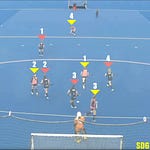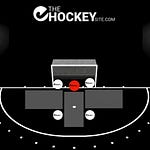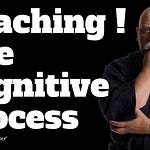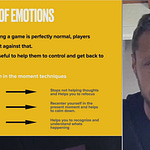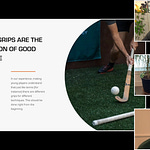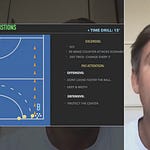In the constantly evolving world of elite field hockey, the hunt for high performance and sustainable success is more demanding than ever. Reflecting today’s increasingly interconnected global landscape, the capacity to build truly diverse and resilient environments within teams and—as this masterclass illuminates—coaching staffs, is emerging as a critical competitive edge. In this masterclass we’re joined by Rein van Eijk (head coach of the German Men's U21 ‘Eagles’), whose recent triumph as Junior World Champion was achieved with an extraordinarily diverse coaching unit. Drawing both on his Dutch roots and extensive international coaching exposure, Rein details why and how diversity is not only a buzzword or social imperative but a strategic superpower in the context of modern field hockey coaching.
Let’s unpack Rein’s insights from the session, summarizing the foundational concepts, practical structures, and cultural shifts needed to harness diverse expertise to maximum effect within a coaching staff. We’ll also explore Rein’s responses to thoughtful questions posed by coaches from around the globe, before offering practical takeaways that experienced field hockey coaches can incorporate into their own environments.
Why Focus on Diversity in Coaching Teams?
Rein starts by challenging the notion that diversity is merely an HR catchphrase or a value limited to the player group. In fact, he argues, it may be even more potent—if less obvious—when purposefully cultivated within the coaching staff itself. Most coaching teams, he notes, form around shared backgrounds, philosophies, and even personalities, leading to an insidious risk of groupthink. By contrast, the deliberate inclusion of diverse perspectives, backgrounds, and expertise creates a richer environment for innovation, problem-solving, and ultimately, the kind of high trust and psychological safety that characterizes elite teams.
Field hockey, as a global sport, is uniquely positioned to benefit from such an approach. The migration of coaches across national borders is now common—on the men’s side of international hockey, Rein observes, the majority of the world’s top 8 nations now have coaching staffs containing a blend of nationalities, genders, and generation-spanning experience. These trendsetting nations “consistently outperform homogeneous teams in terms of innovation, problem solving and even revenue,” drawing a parallel with diverse teams in leading global businesses. In essence, diversity is becoming the secret sauce in the international hockey arms race.
Building the Diverse Staff: The German U21 Case Study
The Make-up and Rationale
A highlight of Rein’s approach is seen in the coaching staff structure for the German U21s. The staff, unusually large at 9–10 members, was meticulously selected for complementary qualities, backgrounds, and expertise. This includes an Olympic gold medallist from GBR; a Dutch coach with deep Bundesliga experience; a young German video/goalkeeping coach; a South African in the physical/medical department; and others. The support staff spanned three generations and four nationalities—each, Rein emphasises, bringing “demographic, cognitive, organisational, cultural and generational diversity” to the table.
The underlying goal was not diversity for its own sake, but “getting the best coaches working with our most talented players—regardless of gender, age, or nationality." With Rein personally tending towards introversion and emotional decision-making, he intentionally sought colleagues who would balance his own style—extroverted, decisive, and able to build rapport differently with players. Thus, the construction of the staff was both strategic and philosophical: a deliberate attempt to surround himself with people different from himself, who would challenge, complement, and collectively lift standards for the players.
Impact on Team Performance
So what was the result? Rein credits their Junior World Cup win to just this synergy—“we really utilized all the different qualities and strengths that were in the staff as well as in the team.” He goes on to detail the specific ‘superpowers’ enabled by this diverse collective:








